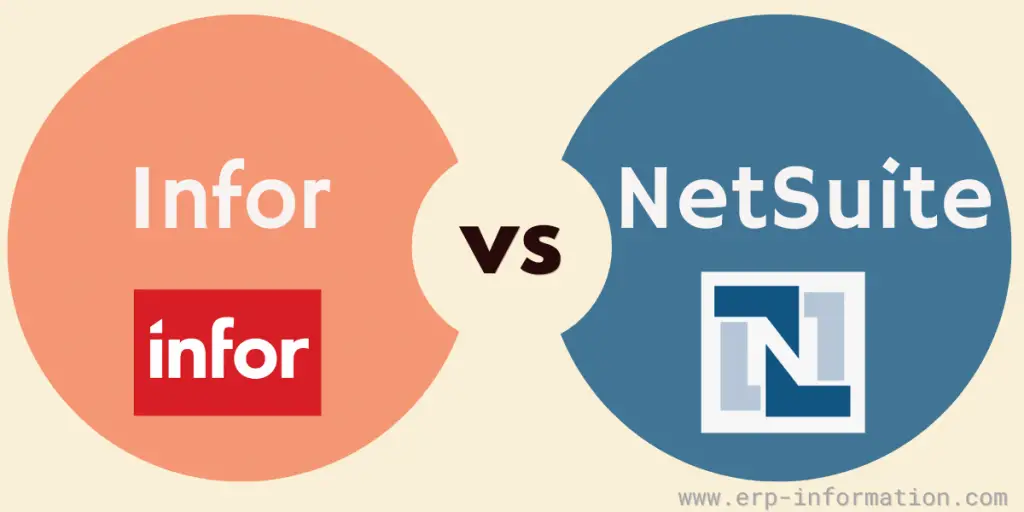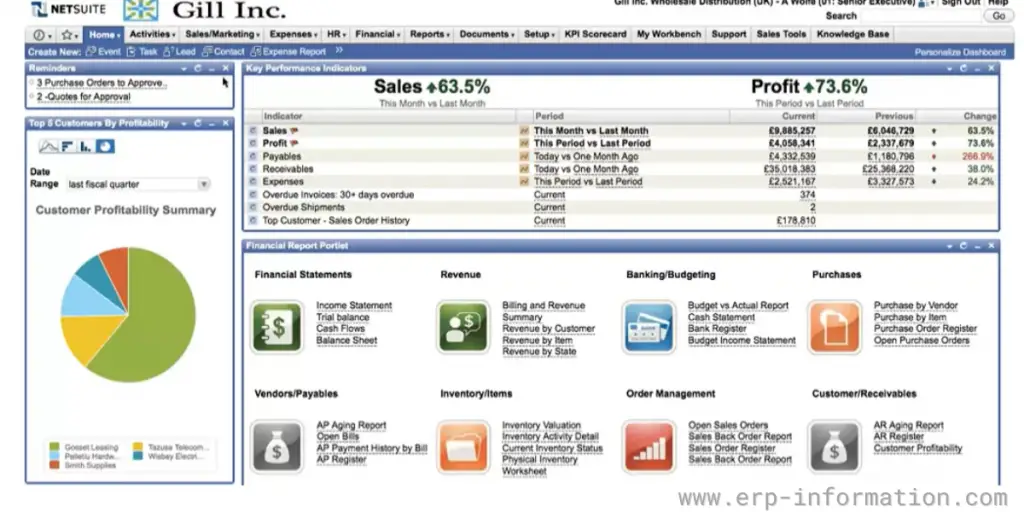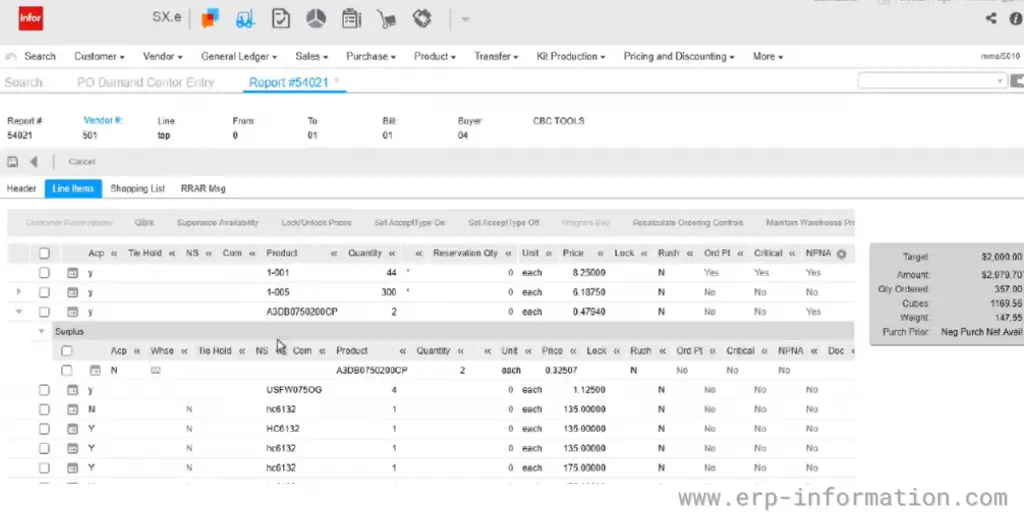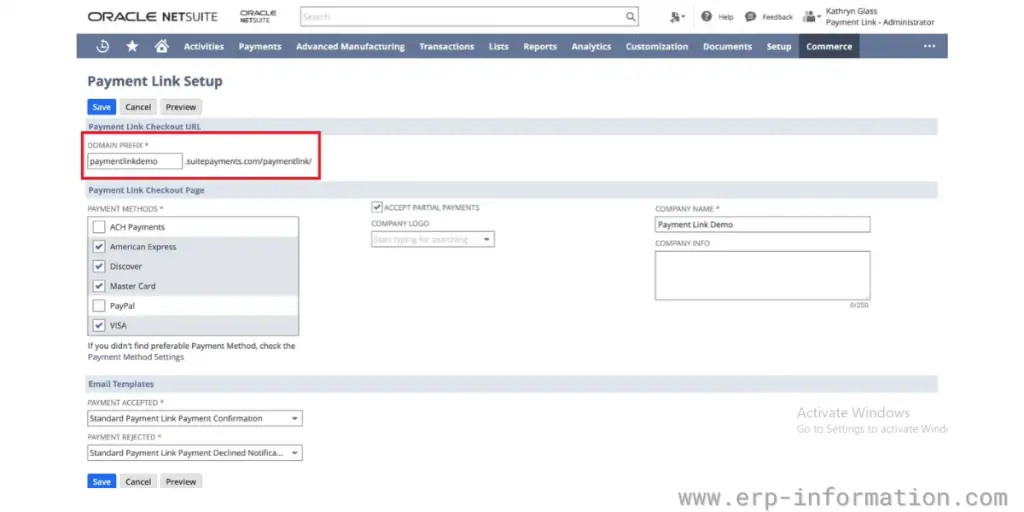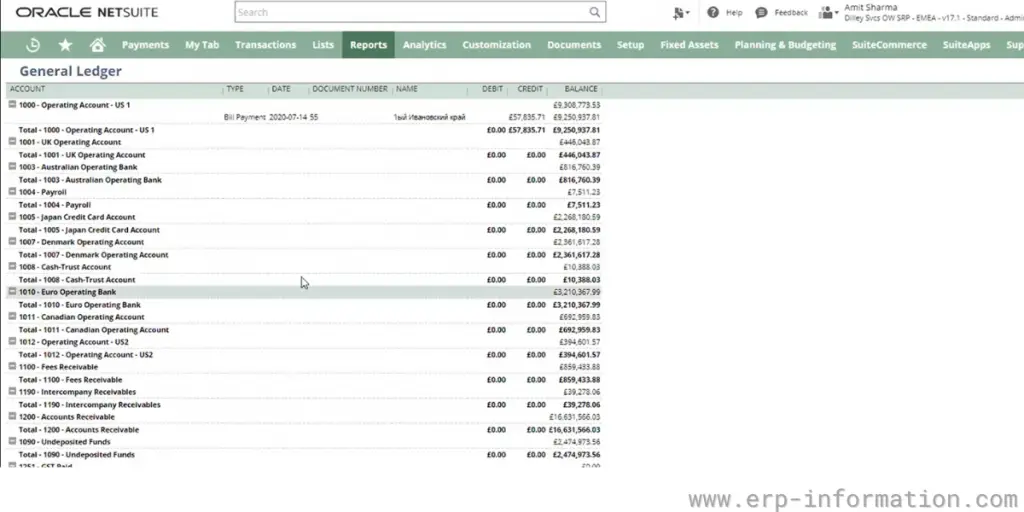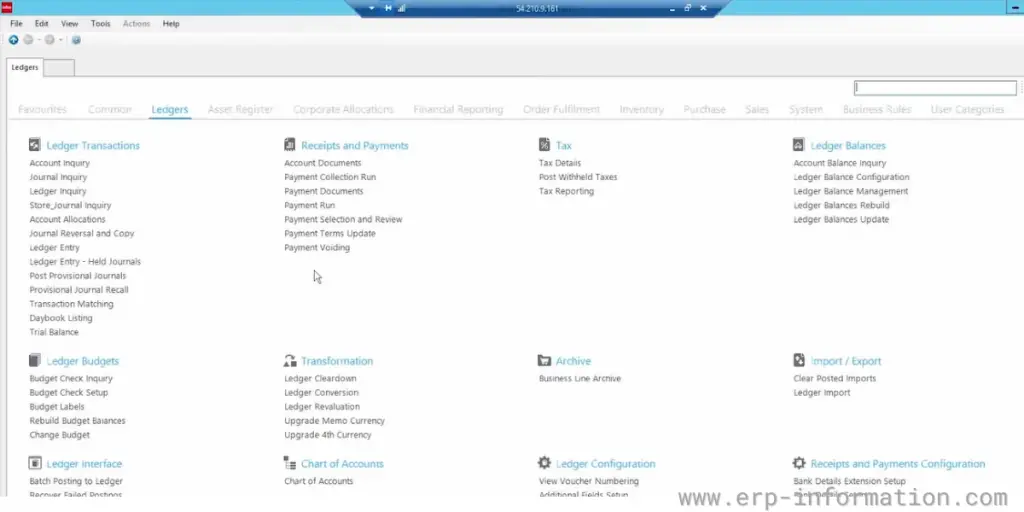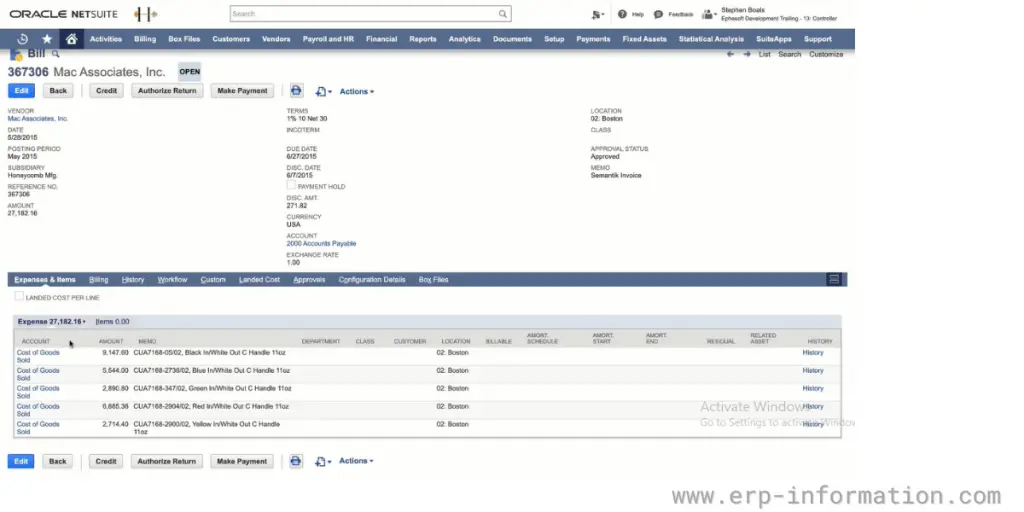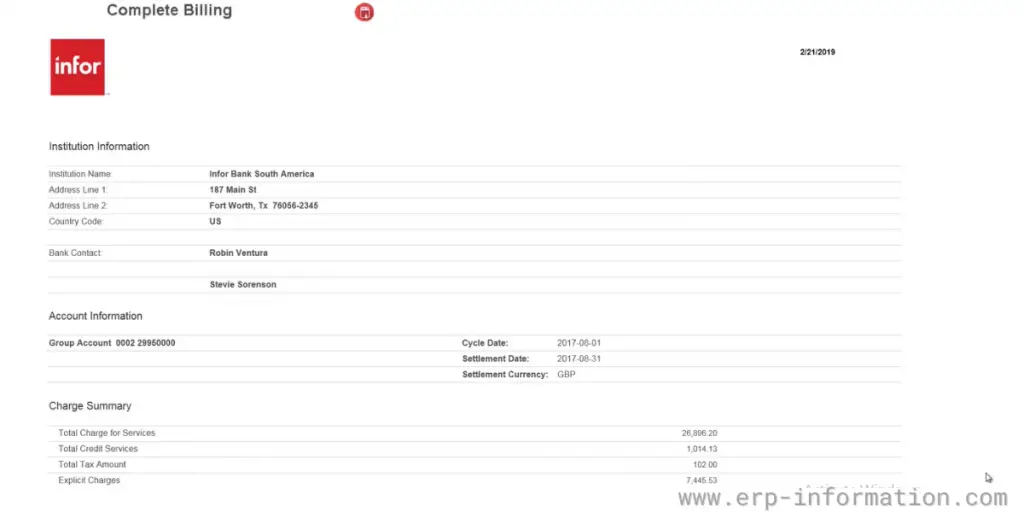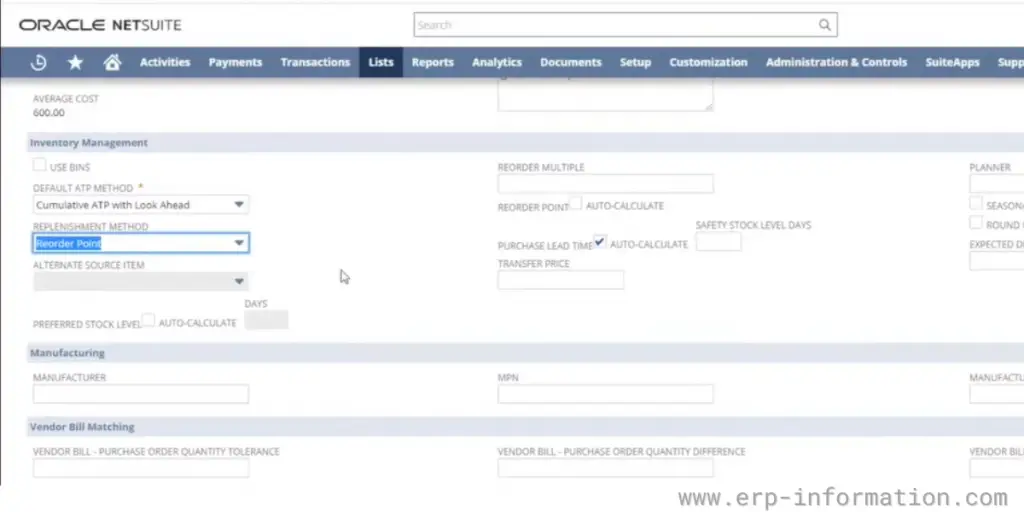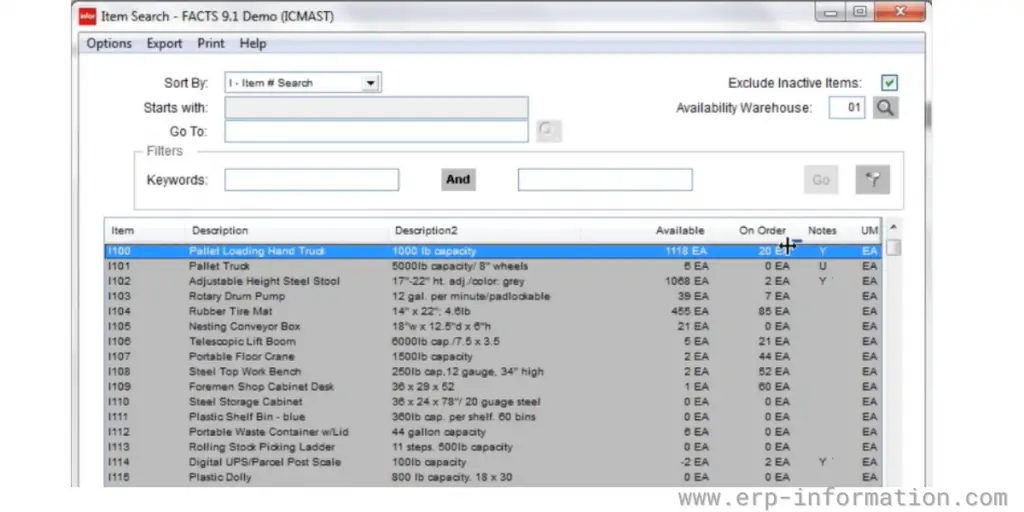Infor and NetSuite are two of the most well-known ERP software choices available. But deciding which one is better for your business can be tough. You definitely do not want to pick the wrong one and regret it later.
Let’s take a closer look to help you make the best decision!
In this blog post, we discuss Infor vs NetSuite so you can see the differences between them and decide which ERP software is better for your business.
What is Infor?
Infor is a top-notch software solution that helps companies of all sizes manage their businesses. It offers a complete enterprise software suite including ERP, CRM, and HCM applications. It has over 10,000 employees and serves over 70,000 customers in over 200 countries.
What is NetSuite?
NetSuite is a cloud-based ERP system capable of running critical processes efficiently. NetSuite’s ERP software is used by businesses of all sizes in various industries, including e-commerce, retail, and manufacturing.
It enables complete control and insight into many businesses’ processes. It has around 24,000 customers in 190 countries.
Price
| Infor | NetSuite |
| Free trial: available | Free trial: available Starting price:$99 per user/month Base License:$999 per use per month |
Infor Vs NetSuite
Features comparison
ERP features
Infor provides more flexible ERP solutions than NetSuite.
- NetSuite – Reporting, CRM, dashboard, managing distribution, integrating and managing the accounting, purchasing, management of warehouse, order, and supply chain
- Infor – Reporting, HRM, CRM, dashboard, managing distribution, integrating and managing the accounting, purchasing, management of warehouse, project, order, and supply chain
Account payable
NetSuite offers more robust features in accounting as compared to Infor.
- NetSuite – Duplicate payment warning, money management, supplier management, Approval management, Reconciliation, general ledger, Writing check
- Infor – General ledger
Billing and invoicing
- NetSuite – Schedule base billing, contact database, billing management, contingency billing, customer platform, invoicing customization, history of the invoice, remote payment, online invoice and payments, project and service billing, calculation of tax
- Infor – Calculation of tax, billing, contact database, processing payment
Inventory management
- NetSuite – Multi-channel management, RFID, kitting, forecasting, inventory management, notification, remote access, retail, supplier, reorder, and warehouse management.
- Infor – Multi-channel management, notification, remote access, retail management
NetSuite provides more customizable and multiple options in billing, invoicing, and inventory management.
Essential comparisons of Infor and NetSuite
Upgrading process
NetSuite was built initially on the cloud-based platform, but Infor was not. Instead, Infor was re-architected to be hosted on Amazon Web Services(AWS). Unfortunately, that means many different versions of this software, and it cannot be easy to upgrade all customers simultaneously.
Blockchain technology
Among the two, only NetSuite adapts blockchain technology. It enables a collaborative framework for sharing data in the cloud,on-premise, or SaaS platforms.
Real-time data
NetSuite provides real-time data quickly without any intervention, whereas Infor uses middleware Intelligent Open Network(ION) to exchange accurate data between different modules.
Implementation
The total cost of ownership of the Infor cloud application is higher comparatively.
Best in
Infor provides more industry-specific modules and functions tailored to focus on modern design, high speed, and better user interface.
On the other hand, NetSuite cloud-ERP focuses on managing core business applications by developing a partially or fully integrated solution for CRM, financials, e-commerce Etc.
Integrations
- Infor is integrated with more than 30 solutions, including Indigo WMS, Proteus CMMS, and more.
- NetSuite is integrated with more than 650 solutions, including Ledgible, ConnectWise, BambooHR, Pacejet, and more. In comparison, it supports more integrated business operation functionalities.
Other comparisons
| Infor | NetSuite | |
| Programming language | .net, j2EE | ODBO |
| Language support | Chinese, Czech, Danish, Dutch, English, Finnish, French, German, Hebrew, Hungarian, Italian, Japanese, Norwegian, Polish, Portuguese, Russian | Chinese, English, French, German, Japanese, Norwegian |
| Deployment | Cloud, SaaS, Web-Based, windows, Linux, iPhone,iPad | Cloud, SaaS, Web-Based, Android, iPhone, iPad |
| Competitors | Visual EstiTrack, Acumatica Cloud ERP, Odoo, SyteLine, S2K Enterprise, ProShop | Acumatica Cloud ERP, OneHash, Odoo, Accurants, M1 ERP |
| Training | In-person, online, webinar, documentation | In-person, online, webinar, documentation, video |
| Customer Support | Knowledge base, Phone support, email, chat | Live, online, phone support, email, chat, Knowledge base |
| Most suitable for | Midsize to large industries | Startup to midsize industries |
Likes and Dislikes NetSuite vs Infor
Likes of Infor VS NetSuite
Infor
- It is the least complicated, simple, and easy-to-use software in the market
- There are many ready-made reports available for us to choose from.
NetSuite
- Enables customization of features or reports depending on requirements without IT expert help
- Data management is easy with the dashboard
Dislikes Infor vs NetSuite
Infor
- Auto-locking doesn’t exist, so if users aren’t using the program for extended periods, the program won’t sign them out. It slows down the system when there are more users.
NetSuite
- Needs improvement in updating documentation of newly added features and customer support.
FAQs
Is Infor Tier 1 ERP?
Yes. Infor is a big player in the world of ERP (Enterprise Resource Planning) software, and it’s often placed in the top category, known as Tier 1. Tier 1 ERP companies are usually the major players, known for their comprehensive and intricate software. They create these solutions to meet the needs of really large companies and businesses that work on a global scale.
Is NetSuite a Tier 1 ERP?
NetSuite is often categorized as a Tier 2 ERP (Enterprise Resource Planning) solution. Tier 2 ERP vendors typically cater to mid-sized businesses, offering a robust and scalable suite of software that can meet the needs of companies with moderate complexity and growth ambitions.
While NetSuite provides comprehensive ERP capabilities, it is often seen as better suited for mid-market organizations rather than the largest multinational enterprises, which are the primary focus of Tier 1 ERP providers.
Conclusion
NetSuite proves to be an excellent option for businesses looking to expand their sales and service teams or introduce new product lines. Its scalability allows it to adapt to your company’s growth, making it a flexible and accommodating choice.
Its CRM and e-commerce capabilities also give you a complete view of your customer relationships from a sales, service, and marketing perspective.
On the contrary, Infor is a suitable option for companies dealing with intricate manufacturing processes or seeking to leverage the company’s extensive industry knowledge. This software is tailored to support specific sectors like manufacturing, healthcare, and hospitality.
Hope you found this article Infor vs NetSuite helpful. Thank you for reading!
